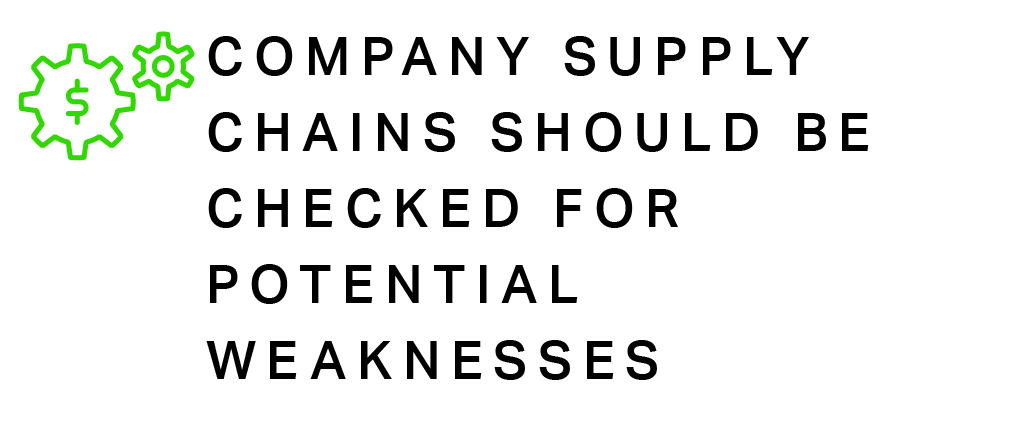Enhanced Due
Diligence in the
Current Environment

The crisis caused by COVID-19 led to a slowdown in private equity deals in the first half of the year, as activity at many companies ground to a halt due to lockdown measures across Europe. As restrictions loosen, and economies and businesses re-open, private equity M&A is building some momentum. However, much has changed, particularly in directly-affected sectors, where private equity buyers need to take a more forensic approach to due diligence. Buyers must delve more deeply into target companies, as well as their customers and suppliers, in order to uncover not only the direct impacts of COVID-19, but also the potential secondary effects of the crisis and management’s response to-date.
Due diligence should leave no stone unturned in the search for threats and business risks. However, three key areas should be in sharp focus:



Determining True Financial Performance
Pro forma adjustments to EBITDA are widely accepted by sellers and buyers as a means of recalibrating earnings for one-off events, or even projecting the potential benefits of cost-cutting measures and synergies. On one hand, such adjustments allow sellers to achieve higher valuations; on the other, they permit buyers to access more leverage to fund their acquisitions.
Today, so-called “EBITDAC” figures (earnings before interest, taxes, depreciation, amortisation and COVID-19) are increasingly making their way into deal discussions. However, prospective buyers are approaching optimistic seller-generated metrics with understandable caution and are increasing the time and resources spent on investigating financial performance for themselves. As well as looking more closely at benchmarks relative to peers in the target sector, sponsors should be analysing cash flows over the cycle and making sensible and conservative forecasts for future earnings and valuations, taking into account a potential future escalation in COVID-19 cases that could result in further restrictions and a slower return to normal activity and demand. Sponsors will also need to consider the target company’s position in the value chain and the potential for delayed COVID-19 impacts.

Checking for Red Flags in Legal and Contractual Due Diligence
Typical due diligence concerns around the terms of borrowing and customer and supply contracts carry more weight than ever, given the threats to businesses and the economy at large. Sponsors should be investigating debt structures and the bank lending terms in detail. It is essential to look closely at covenants, interest payment schedules and debt maturities to ensure target companies have adequate headroom and the ability to meet regular payments in the short term, as well as the longer-term ability to make principal repayments.

Counterparty risk is an increasingly large threat to the reliability of a company’s supply chain and its recovery. Company supply chains should be checked for potential weaknesses, including the solvency and strength of key suppliers, and how government intervention might impact the flow of goods. Sponsors will need to consider how they might adjust those supply chains in the case of a problem and what constraints the existing terms will impose (e.g. exclusivity, fixed pricing, minimum terms or purchase commitments and associated penalties). Potential buyers must also dig deeper into contracts with a wider range and greater depth of customers, assessing the likelihood of those companies wanting to renegotiate deals or, worse, defaulting or heading into insolvency.
Operational Due Diligence and Human Capital
The pandemic has given rise to a range of never-seen-before measures to protect businesses and employees. By end-June, 9.4 million workers had been placed on the UK government’s Coronavirus Job Retention Scheme with £26.5 billion distributed to companies to support furloughed workers. By July, however, there had been almost 4,000 cases of fraudulent claims reported to the tax authorities. Prospective buyers need to ensure that furlough arrangements were properly implemented, and certain insurers are now offering policies to protect buyers specifically against furlough clawbacks resulting from wrongful claims.

As companies bring staff back to work, it is also important to ensure that companies have properly formulated and implemented their “return to work” policies and procedures. Businesses are moving at different speeds and, in the face of changing government guidance and worker fears, a standardised approach to navigating this difficult transition is yet to emerge.
Payroll is often among the most significant expenses in a business’ P&L and buyers will also need to pay close attention to human capital issues more generally. Many businesses have been forced to make difficult employee-related decisions in response to the crisis and sponsors should pay particular attention to understanding any large-scale redundancies or deferment of salaries, bonuses or other payments. Sponsors will also want a clear understanding of their ability to make or impose changes in the future, including their ability to re-hire workers and the terms of employment. Any collective bargaining agreements and past-redundancy arrangements will be key to understanding what levers firms will be able to pull going forward.
On the plus side, businesses may be able to access government support and buyers should investigate what is available in each jurisdiction in which a company operates. But assessments should also go beyond the legal and financial implications and consider the reputational impact of measures affecting jobs, especially during a time of intense scrutiny on companies and owners. In July, the UK fashion retailer Primark turned down the government’s offer of a £1,000 bonus for each employee brought back to work, which in its case could be worth as much as £30 million. Primark’s example could put pressure on more employers to follow suit.


Michael J. Preston
Partner
London
T: +44 20 7614 2255
mpreston@cgsh.com
V-Card
Gabriele Antonazzo
Partner
London
T: +44 20 7614 2353
gantonazzo@cgsh.com
V-Card
Michael James
Partner



